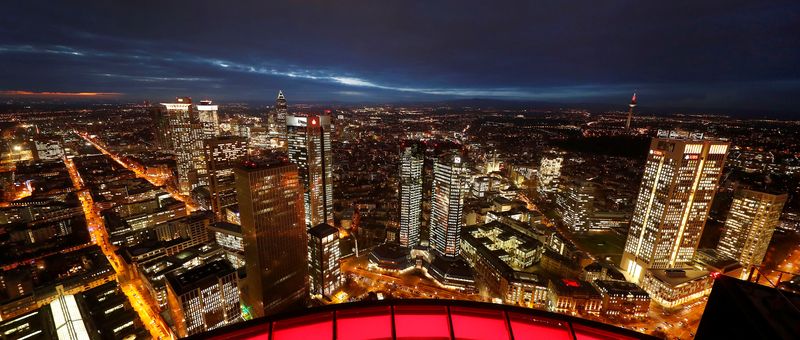
© Reuters. FILE PHOTO: The financial district with the headquarters of Germany’s largest business bank, Deutsche Bank (C), is photographed on early evening in Frankfurt, Germany, January 29, 2019. REUTERS/Kai Pfaffenbach/File Photo
BERLIN (Reuters) – The European Central Bank will certainly raise its interest rates considerably, though how far it ultimately goes will depend on how the economic situation develops, the head of Germany’s Ifo economic institute told Reuters on Tuesday.
“The ECB still has quite a long way ahead of it,” said Clemens Fuest. “That’s simply because it just started late.”
So far, all the ECB has done is normalize monetary policy, said Fuest, and with record inflation, it had to hit the brake, especially as the economic situation was not as bad as feared.
With the inflation rate in double digits, the ECB has already raised interest rates by 200 basis points in just three months, from record low levels.
Fuest was optimistic about the prospects for Germany’s economy, Europe’s largest, which he said could possibly face a mild recession if a gas shortage is avoided this winter.
“We also see that industry is coping surprisingly well – at least in the short term – with the energy shortage and the high energy costs,” said Fuest, adding the economy was proving more robust than many expected.
Fuest added that deindustrialization should be a serious concern for Germany in the long term, especially in energy-intensive companies, as it loses out to more attractive locations.
Other burdens, including a shortage of skilled workers and protectionism would also increasingly come into play, he added.
Source: Investing.com



























